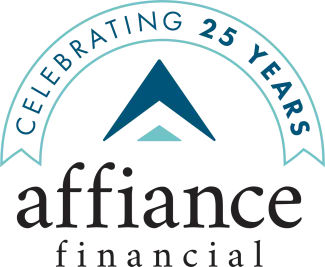
Three Tips for Making an Impact This Financial Literacy Month
By Steve Lear, ChFC, CLU, BFA™
Financial Literacy is the knowledge that allows you to earn, save and invest, protect, spend, and borrow money with confidence. Recently, the Minnesota Legislature made personal finance a required course to graduate high school in the state. While we applaud this major step forward, we recognize that too many Americans lack basic financial knowledge. If you are financially literate, you understand the confidence and stability a solid financial education can bring to a person’s life. This Financial Literacy Month, we want to share some ways that you can help make an impact by sharing financial literacy with others.
What is National Financial Literacy Month?
The month of April is nationally recognized as Financial Literacy Month. Throughout the month, schools, businesses, and non-profit organizations share information to promote the importance of financial literacy. Financial literacy refers to your understanding of financial concepts – such as budgeting, debt management, and investing – that can help you make smart money decisions. A high level of financial literacy garners many benefits, including greater stability, less stress, and an overall higher quality of life.
FINRA, the Financial Industry Regulatory Authority, created a seven-question quiz to test your financial literacy:
https://www.finra.org/financial_literacy_quiz
How did you do compared to the national average? If you scored a 4 or above, you might be in a position to help spread financial literacy.
Why does financial literacy matter?
FINRA estimates that about 66% of Americans are financially illiterate. Lacking financial literacy can lead to many problems. Without a clear understanding of financial concepts, you leave yourself more vulnerable to financial fraud. You are also more likely to struggle with debt, and uncontrolled debt can snowball into additional issues such as poor credit, bankruptcy, or foreclosure.
A solid understanding of financial literacy can help people avoid making basic financial planning mistakes, such as failing to establish an emergency reserve or save enough for retirement. According to research by the TIAA Institute, more than half of all American millennials lack an emergency reserve – savings to cover three month’s expenses. More than a quarter are considered financially fragile – unlikely to be able to come up with $2,000 in one month to cover an emergency cost. A 2020 Federal Reserve report found that more than a quarter of Americans had no retirement savings. Fewer than 40% of Americans who are not yet retired considered their retirement savings to be on track.
A lack of financial literacy may seem like an individual problem, but it has deep societal impacts as well. For example, one major cause of 2008’s Great Recession was a lack of understanding of mortgage products, which lead to an increase in predatory lending. This lack of financial literacy had global economic impacts.
By helping people make smart money decisions, financial literacy helps people compete in our ever-evolving world and ultimately improve their lives. This makes financial literacy an important tool for social justice.
What are three ways to make an impact this Financial Literacy Month?
1. Lead by example
Spread financial literacy to the people in your life by being open with your financial acumen. I’m not suggesting you show anyone your account statements, but don’t shy away from discussing important topics such as saving for an emergency and planning for retirement.
Talking to peers such as colleagues, neighbors, friends, and family, can be a great way to spread financial information. Help those around you by sharing your financial successes – and mistakes – so that they can learn from them. Don’t shy away from including kids in your conversations. It’s much easier to start out with good money habits than to break bad ones later on.
Financial literacy can also be learned through articles, community education, podcasts, TED Talks, books – we recommend Morgan Housel’s The Psychology of Money – or by talking to a financial professional. At Affiance Financial, we are always ready and willing to help answer questions for the people in your life. We want to help you empower others to take control of their financial futures.
2. Build your financial resilience
Being financially literate doesn’t always guarantee that you are financially resilient. Our personal finances are affected by many factors that are out of our control – employment, interest rates, and inflation to name a few. When riding on an airplane, you are always instructed that in the case of an emergency you should secure your mask before securing the mask of others. Make a difference this Financial Literacy Month by ensuring you are financially resilient enough to support yourself through any rough air. Here are some ways to start:
Create a budget
Track your monthly income compared to your monthly expenses. Being aware of where your money is going is the first step to making changes when necessary. And, knowing your expenses will help you know how much to save in your emergency reserve.
Establish an emergency reserve
The traditional recommendation is to keep three to six months’ worth of expenses in an easily accessible location, such as a high-yield savings account. By establishing an emergency reserve, you will have funds available in the case of an unexpected large expense so that you don’t need to go into debt or use your retirement savings – usually at the cost of a penalty.
Track your credit
Having a good credit score can help ensure you are offered the lowest interest rates available for mortgages, loans, and credit cards. Stay on top of your credit by requesting a free credit report from one of the three major credit bureaus – Experian, Equifax, or TransUnion – and reviewing it for any errors or inaccuracies.
Invest in your future
Build financial resilience by saving for tomorrow, today. If you are working, you may be able to leverage your employer’s retirement savings plan, such as a 401(k), to take advantage of an employer match and tax-advantaged savings. Time is an investor’s greatest asset. Saving for your future today will give your investments time to compound, which can help them grow exponentially over a long enough time horizon.
Consider working with a professional
At some point, your financial situation may begin to feel too complicated to handle on your own. Maybe you have a complicated compensation plan at work that includes restricted stock units (RSUs), stock options, stock appreciation rights (SARs), or an employee stock purchase plan (ESPP). Maybe your tax bill has grown exponentially, and you are curious about long-term strategies to minimize your liability. Maybe you are nearing retirement, and you know you only have one shot to get it right. In any case, you may find comfort in working with a professional financial planner. Financial planners have education and experience in dealing with complicated financial situations. They can help you build financial resiliency by creating a financial plan tailored to your unique needs.
3. Give to organizations that support financial literacy
Another way to make an impact this month is by supporting organizations working to promote financial literacy. Your support can come in the form of lobbying, volunteering, or making a cash donation, but please be sure you are secure in your own financial resilience (see #2 above) before considering any charitable gifts. There are many great, locally-based organizations actively working to promote and improve financial literacy in Minnesota:
- Minnesota Council on Economic Education (MCEE) – by training teachers and engaging students, MCEE aims to equip Minnesotans with the economic and personal finance knowledge and skills to make informed decisions and thrive in our complex world.
- BestPrep – provides educational programs to prepare students with business, career, and financial literacy skills.
- Junior Achievement North – addresses the skills, wealth, and opportunity gaps our communities are facing by offering programming addressing financial literacy, career readiness, and entrepreneurship.
Final Thoughts
Financial literacy is a powerful tool – both on an individual and a societal level. Our finances affect every area of our life. Having the information we need to make the best possible financial decisions will flow into every other area of our lives. Financial literacy builds confidence, provides stability, and enhances the likelihood of us reaching our goals.
If you are looking for ways to give back this Financial Literacy Month consider:
- Leading by example – sharing what you know with the people in your life.
- Building your financial resilience – financial literacy does not guarantee financial resilience. Support others by first ensuring you can support yourself through challenging times.
- Giving to organizations that support financial literacy – through volunteer hours or philanthropic gifts, there are many organizations that could use your support.
By implementing even just a few of these tips, you can make a meaningful impact during Financial Literacy Month. By working together, we can help build a more financially literate and empowered society.
Sources:
- https://www.forbes.com/sites/truetamplin/2023/09/21/financial-literacy--meaning-components-benefits--strategies/?sh=18bb845a68cd
- https://www.investopedia.com/terms/f/financial-literacy.asp
- https://mn.jumpstart.org/
- https://www.aboutschwab.com/mss/story/why-financial-literacy-will-unite-americans#:~:text=Financial%20literacy%20is%20a%20powerful,compete%20in%20our%20evolving%20world.
- https://www.kiplinger.com/personal-finance/604561/beyond-financial-literacy-what-you-need-to-win-with-your-money
- https://www.nerdwallet.com/article/finance/building-financial-resilience-can-help-you-ride-out-tough-times#:~:text=Create%20a%20savings%20reserve&text=Keeping%20those%20savings%20in%20a,term%20financial%20resilience%2C%20Sprick%20says.








